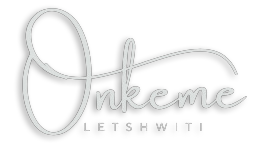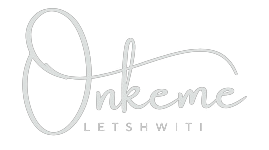The Funday-Monday Gap: Why Your Weekend Faith Isn't Changing Your Weekday Business
Funday morning: hands raised in worship, heart full of faith, spirit soaring with divine possibilities. Monday morning: coffee in hand, spreadsheets open, operating by the same secular business principles as everyone else. Sound familiar?
This is what I call the "Funday-Monday Gap" – the chasm between our weekend worship and our weekday work, between our sanctuary faith and our marketplace practices. After years of pastoring It Is Well Church International while running multiple businesses, counseling individuals caught in this divide, and transitioning from banking halls to pulpit platforms, I've come to realize that this gap may be the greatest obstacle to both spiritual growth and business success.
The uncomfortable truth? Most of us have unconsciously accepted that faith belongs in church and business belongs in the "real world." We've created two separate operating systems – one for Funday, one for Monday – and wondered why neither seems to work as powerfully as it should.
The Great Compartmentalization
During my banking years at Standard Chartered and Stanbic Bank, I mastered the art of compartmentalization. Funday Onkeme sought God's will, studied Scripture, and believed in divine provision. Monday Onkeme analyzed market trends, assessed credit risks, and made decisions based purely on financial metrics.
I told myself this was being "professional" and "appropriate." What I didn't realize was that I was living as two different people, and both versions were incomplete.
The Funday Version had faith but lacked practical application in the marketplace.
The Monday Version had skills but lacked supernatural wisdom and power.
Neither version was operating at full capacity because both were disconnected from essential aspects of who God created me to be.
The Cost of the Gap
This Funday-Monday divide costs us more than we realize:
Spiritual Cost
When we compartmentalize our faith, we limit God's access to major areas of our lives. We essentially tell Him, "You can have Funday, but Monday through Friday belong to me." This stunts our spiritual growth because we never learn to depend on God in the arena where we spend most of our waking hours.
Business Cost
When we operate businesses disconnected from our faith, we miss out on divine wisdom, supernatural favor, and kingdom resources. We struggle with decisions that spiritual discernment could clarify, and we miss opportunities that faith could unlock.
Personal Cost
Living as two different people is exhausting. The internal conflict between weekend values and weekday practices creates stress, guilt, and a sense of spiritual inadequacy.
Relational Cost
This split affects our relationships with both believers and non-believers. Christians may question our authenticity, while non-Christians see no difference between us and secular competitors.
Why We Create the Gap
Understanding why we compartmentalize is the first step toward closing the gap:
Fear of Judgment
We worry that integrating faith into business will make us appear unprofessional, pushy, or naive. This fear keeps us operating in business closets, hiding our most powerful asset.
Lack of Models
Many of us have never seen successful integration of faith and business. We know how to be Christians, and we know how to be professionals, but we've rarely witnessed authentic Christian professionals.
False Teaching
Some religious teaching has unfortunately promoted the idea that business and spirituality don't mix, that making money is inherently suspect, or that faith should be private.
Cultural Pressure
Our secular business culture often explicitly or implicitly discourages religious expression, creating pressure to leave faith at home.
Practical Confusion
Many believers genuinely don't know how to integrate faith and business practically without being inappropriate or ineffective.
Bridging the Gap: My Journey
My integration journey began when I realized that the same God who gave me spiritual gifts also gave me business acumen. The same Holy Spirit who provides wisdom for pastoral decisions could provide insight for marketplace challenges.
The Awakening Moment
It happened during a particularly challenging season at the bank. I was facing a complex client situation that required both analytical skills and relational wisdom. Suddenly, it struck me: why was I trying to solve this without the most powerful resource available to me – prayer and divine guidance?
That day, I began praying about business decisions with the same intensity I brought to ministry challenges. The results were remarkable – not because God became my business consultant, but because I began operating as one integrated person rather than two fragmented ones.
Building LP Publishers
When we launched LP Publishers, I determined from the beginning that it would be authentically Christian without being inappropriately religious. This meant:
- Values-Driven Operations: Our business practices reflect biblical principles of integrity, excellence, and service.
- Purpose-Aligned Services: We publish content that aligns with our mission to inspire and encourage, not just whatever sells.
- Prayer-Informed Decisions: Major business decisions include seeking divine wisdom alongside market analysis.
- Relationship-Centered Approach: We treat authors, vendors, and customers as people created in God's image, not just business transactions.
The result? A business that feels authentic to who I am and serves purposes beyond just profit.
Practical Integration Strategies
Here are specific ways I've learned to bridge the Funday-Monday gap:
1. Morning Integration Ritual
I start each business day with what I call "marketplace prayer" – seeking God's wisdom for the day's decisions, asking for favor in relationships, and inviting His presence into my work environment.
2. Values-Based Decision Making
Every business decision passes through a filter of biblical values:
- Integrity: Is this completely honest and transparent?
- Excellence: Does this reflect the quality God deserves?
- Service: How does this serve others' genuine needs?
- Stewardship: Am I managing resources responsibly?
3. Witnessing Through Work Quality
Rather than preaching to customers, I let the quality of our work and the character of our interactions be the primary witness. People notice when business practices consistently reflect higher standards.
4. Strategic Generosity
We structure our businesses to generate resources for kingdom purposes. This isn't just giving profits to church – it's building generosity into the business model itself.
5. Mentoring and Discipleship
I use business relationships as opportunities for informal mentoring and discipleship, helping others integrate their faith and work when appropriate.
Integration in Different Business Contexts
The Funday-Monday integration looks different depending on your business context:
Corporate Environments
- Pray for wisdom before major meetings
- Let your character and work quality be your witness
- Look for opportunities to encourage and serve colleagues
- Make decisions based on ethical principles, not just profit
Entrepreneurial Ventures
- Start with prayer and biblical principles in business planning
- Build values into company culture from the beginning
- Use business success to fund kingdom purposes
- Treat employees and customers as image-bearers of God
Professional Services
- Approach client relationships with genuine care and service
- Maintain integrity even when it costs money
- Use your expertise to serve those who can't afford to pay
- See your professional skills as gifts to be stewarded
Ministry-Related Business
- Maintain excellence to avoid giving Christianity a bad name
- Balance kingdom purposes with business sustainability
- Be transparent about religious motivations when appropriate
- Use business credibility to open ministry doors
Overcoming Integration Obstacles
Common obstacles and how to address them:
"It's Not Appropriate"
Solution: Learn the difference between being authentically Christian and being inappropriately religious. You can operate with Christian values without proselytizing customers.
"It Might Hurt Business"
Solution: In my experience, authentic faith integration often attracts customers who value integrity and excellence. You might lose some customers, but you'll gain others who appreciate your authenticity.
"I Don't Know How"
Solution: Start small. Begin with personal practices like prayer and value-based decisions. Find mentors who have successfully integrated faith and business.
"My Industry is Too Secular"
Solution: Every industry needs people of integrity and character. Your faith might be exactly what your industry needs, even if it doesn't know it.
The Transformation Results
When you successfully bridge the Funday-Monday gap, several transformations occur:
Personal Transformation
- Authenticity: You become the same person in all contexts
- Peace: Internal conflict decreases when values align with actions
- Power: You operate with both natural skills and supernatural wisdom
- Purpose: Work becomes ministry, and ministry becomes natural
Business Transformation
- Culture: Values-driven culture attracts quality employees and customers
- Decisions: Better decision-making through combined analytical and spiritual wisdom
- Relationships: Deeper, more meaningful business relationships
- Success: Often improved financial results through ethical practices and divine favor
Spiritual Transformation
- Growth: Faith grows through marketplace testing and application
- Influence: Greater platform for gospel impact through business credibility
- Resources: Business success creates resources for kingdom advancement
- Discipleship: Workplace becomes venue for practical Christian living
Common Mistakes to Avoid
As you work to bridge the gap, avoid these common mistakes:
Over-Spiritualizing Business
Not every business decision needs a prophetic word. Sometimes good business sense is sufficient.
Under-Spiritualizing Business
Don't assume business decisions are purely secular. Seek God's wisdom for significant choices.
Inappropriate Evangelism
There's a difference between being a Christian in business and using business as a platform for inappropriate proselytizing.
Compromising Excellence
Christian businesses should set the standard for quality and service, not use faith as an excuse for mediocrity.
Ignoring Business Principles
Faith doesn't replace sound business practices – it informs and enhances them.
A Personal Challenge
Here's my challenge to you: This coming Monday, don't leave your Funday faith in the sanctuary. Bring it with you to the office, the shop, the boardroom, or wherever your work takes you.
Start small:
- Begin your workday with prayer
- Make one decision based on biblical values rather than just profit
- Look for one opportunity to serve someone through your business
- End your day by thanking God for the opportunity to work
As you begin this integration journey, you might discover what I've learned: the Funday-Monday gap isn't just limiting your faith – it's limiting your business potential. When you bring your full self to your work, including your spiritual dimension, you operate with resources and wisdom that your compartmentalized competitors simply don't have access to.
The Ultimate Integration
The goal isn't to become a "Funday person" on Monday – it's to become an integrated kingdom professional who serves God's purposes through marketplace excellence. When this happens, the distinction between Funday and Monday begins to disappear, not because business becomes church, but because life becomes worship.
Your workplace is your mission field. Your business skills are your ministry gifts. Your customers are your congregation. Your success is your testimony.
The Funday-Monday gap doesn't have to define your life. You can bridge it, one decision at a time, one day at a time, until the gap disappears and you discover the power of authentic, integrated kingdom living.
Stop living two lives. Start living one life, fully surrendered to God and fully engaged in the marketplace. The world is waiting to see what happens when Funday faith meets Monday business without compromise.





